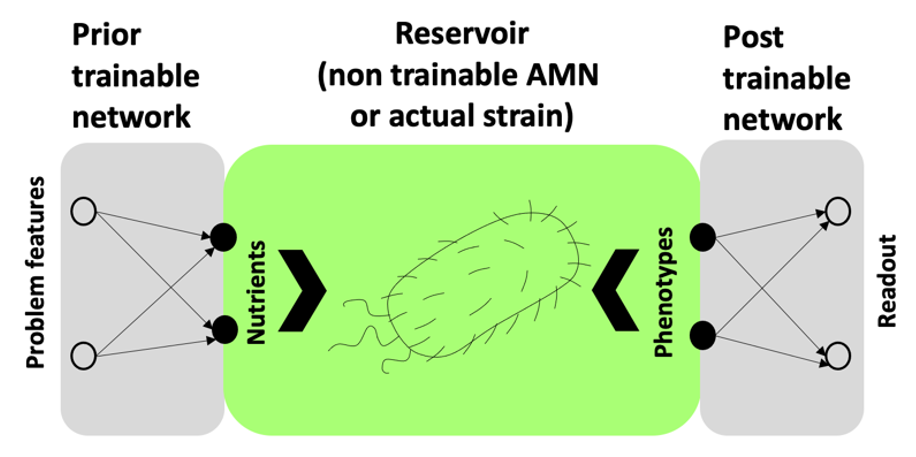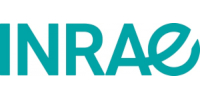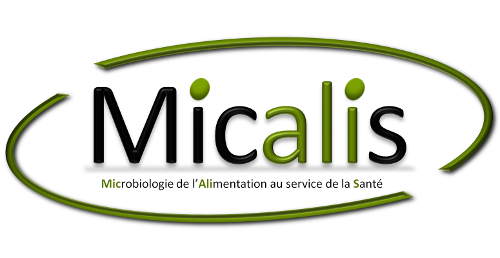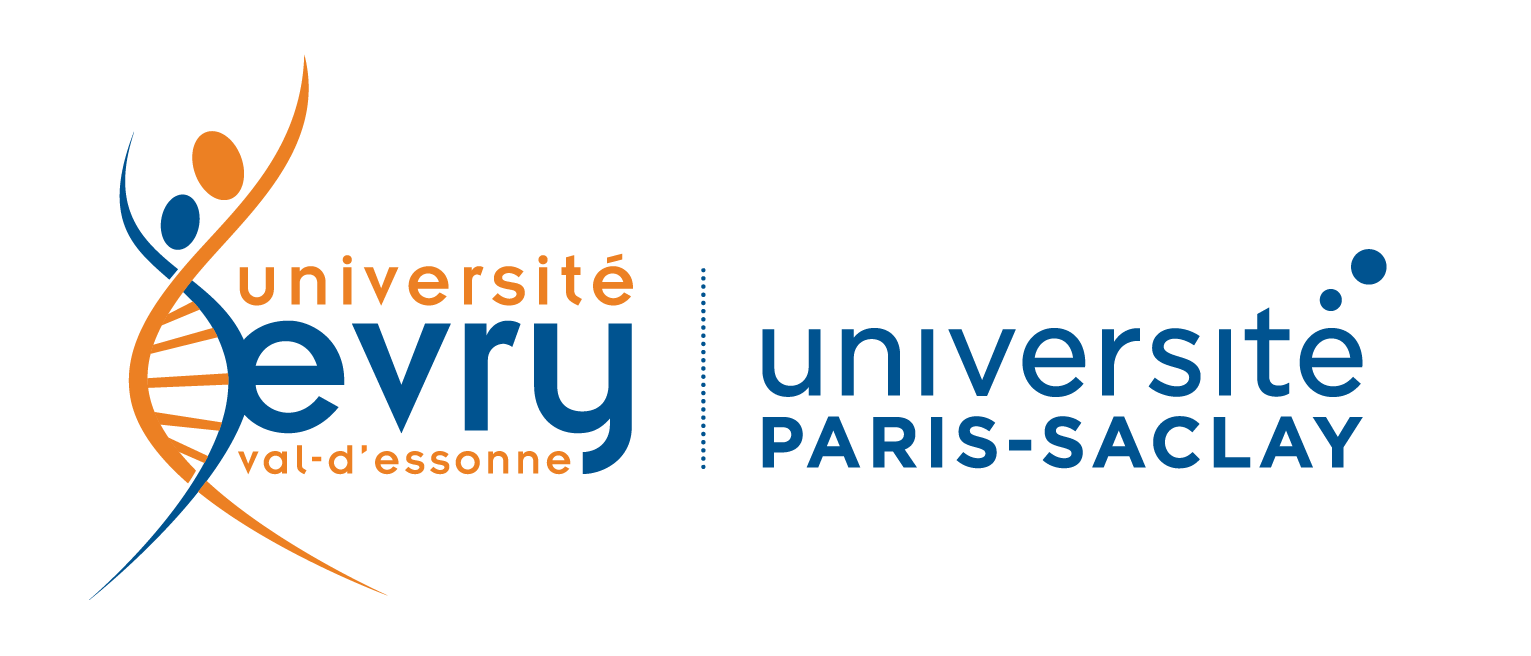Artificial Metabolic Networks

While the primary role of metabolism is chemical conversion, essentially to process food, can it also serve as an information processing and computing device?
To answer this question, the AMN project proposes to encode microbial metabolic networks into artificial metabolic networks (AMNs), which can be trained on experimental data or simulation results. Unlike “black box” solutions (such as artificial neural networks), AMNs reflect the structure and dynamics of the metabolic networks.
Our AMNs will be tested on classical machine learning problems to assess the level of sophistication that metabolism is capable of handling. Using the reservoir concept, different metabolic networks from different species and of increasing complexity will be translated into AMNs.
As shown in the figure below, for a given machine learning problem, the input features are first transformed into concentrations of compounds available in the culture medium, and phenotypes (such as growth rate) calculated by our AMNs fitted on experimentally measurements then used to predict the results of the problem under study. To enable such computation there is a need to backpropagate a gradient from the post to the prior trainable networks. The gradient can pass through the AMN using techniques currently being developed within the nascent field of Scientific Machine Learning [1].

In a biotechnological applications context, our AMNs will be used (i) to design experiments to optimize the productivity by maximizing nutrient compositioń of engineered bacterial strains and (ii) to modify the metabolism of an Escherichia coli strain to classify clinical samples containing biomarkers of infectious diseases.
The AMN project is a collaborative project between the BRS team (MICALIS), the MaIAGE unit which brings know-how on metabolic models, the MIA unit (AgroParisTech) with its expertise in artificial intelligence, and the Grenoble University Hospital for the detection of biomarkers of infectious diseases. Three Ph.D. students and one engineer will be recruited for the project and will be supervised by the four partner teams. For more information, please contact Jean-Loup Faulon (jean-loup.faulon@inrae.fr).
Presentations and publications
The AMN project was presented at the 2022 AAAI Spring Symposium: Artificial Intelligence for Synthetic Biology, March 21-23, 2002, Stanford University, Palo Alto, California, USA, and at the AI-4-SynBio Symposium, Imperial College London, London March 24, 2022 (slides).
[1] Artificial Metabolic Networks: enabling neural computation with metabolic networks, Léon Faure, Bastien Mollet, Wolfram Liebermeister, Jean-Loup Faulon, bioRxiv 2022.01.09.475487; doi: https://doi.org/10.1101/2022.01.09.475487



